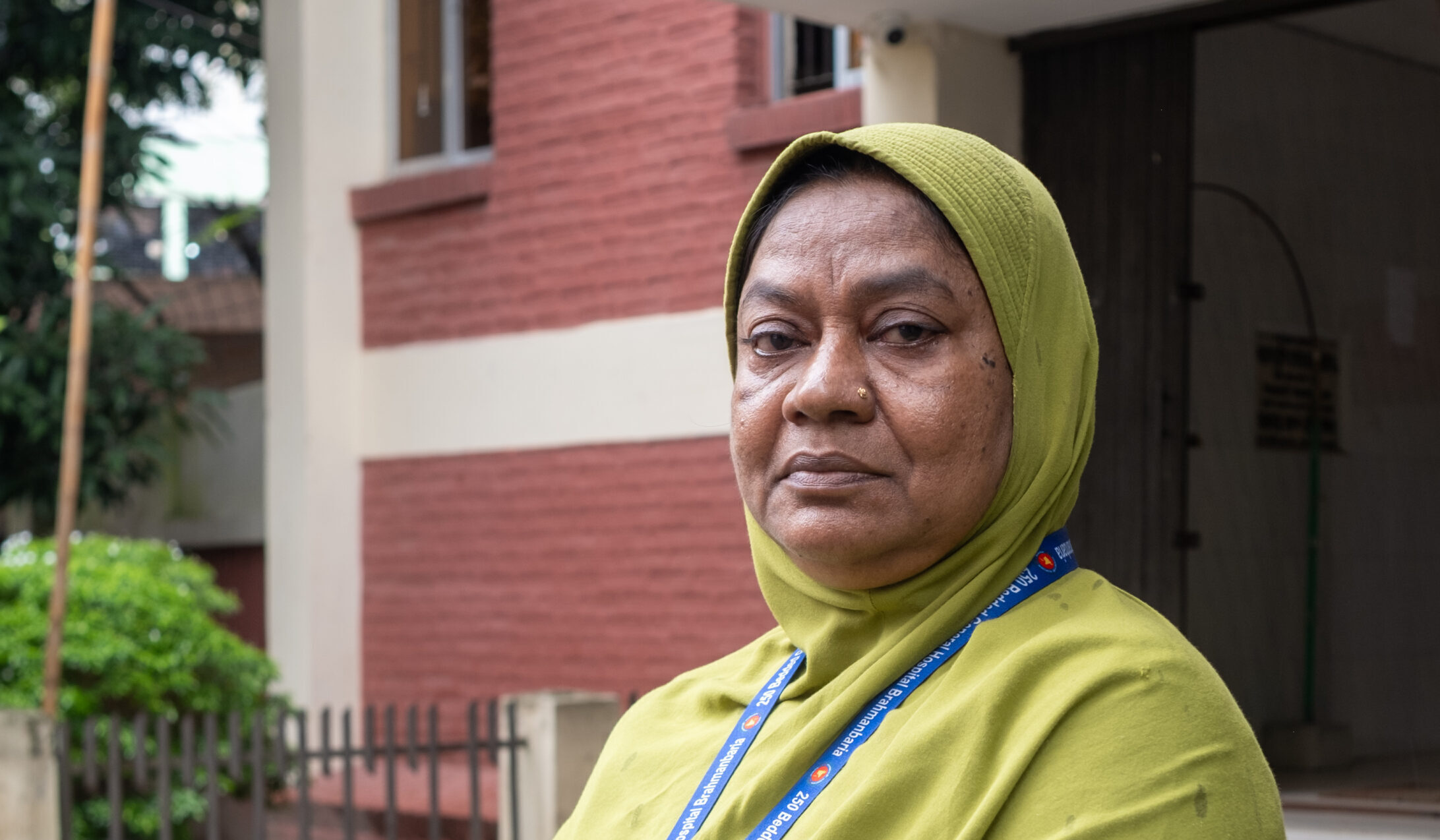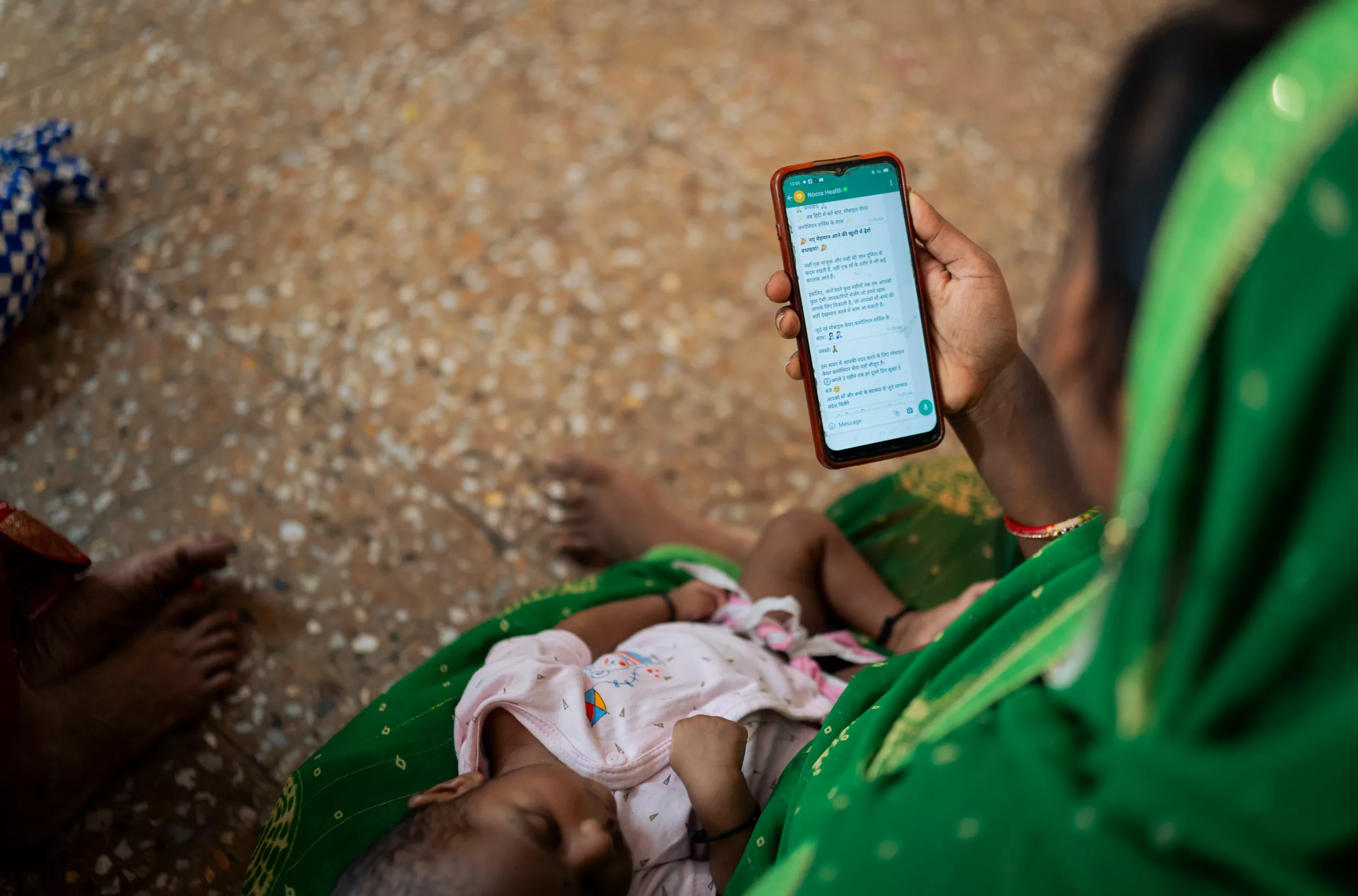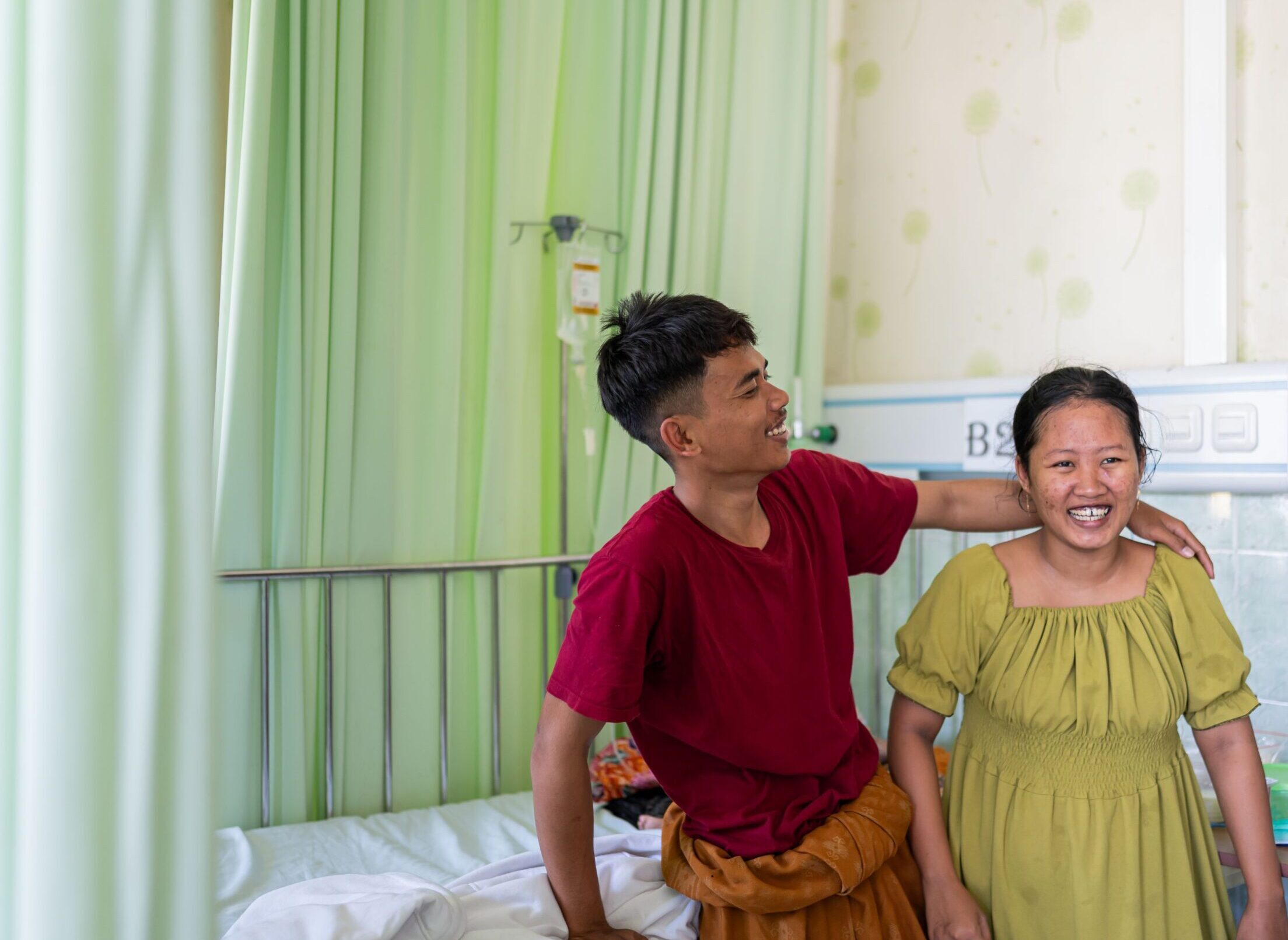
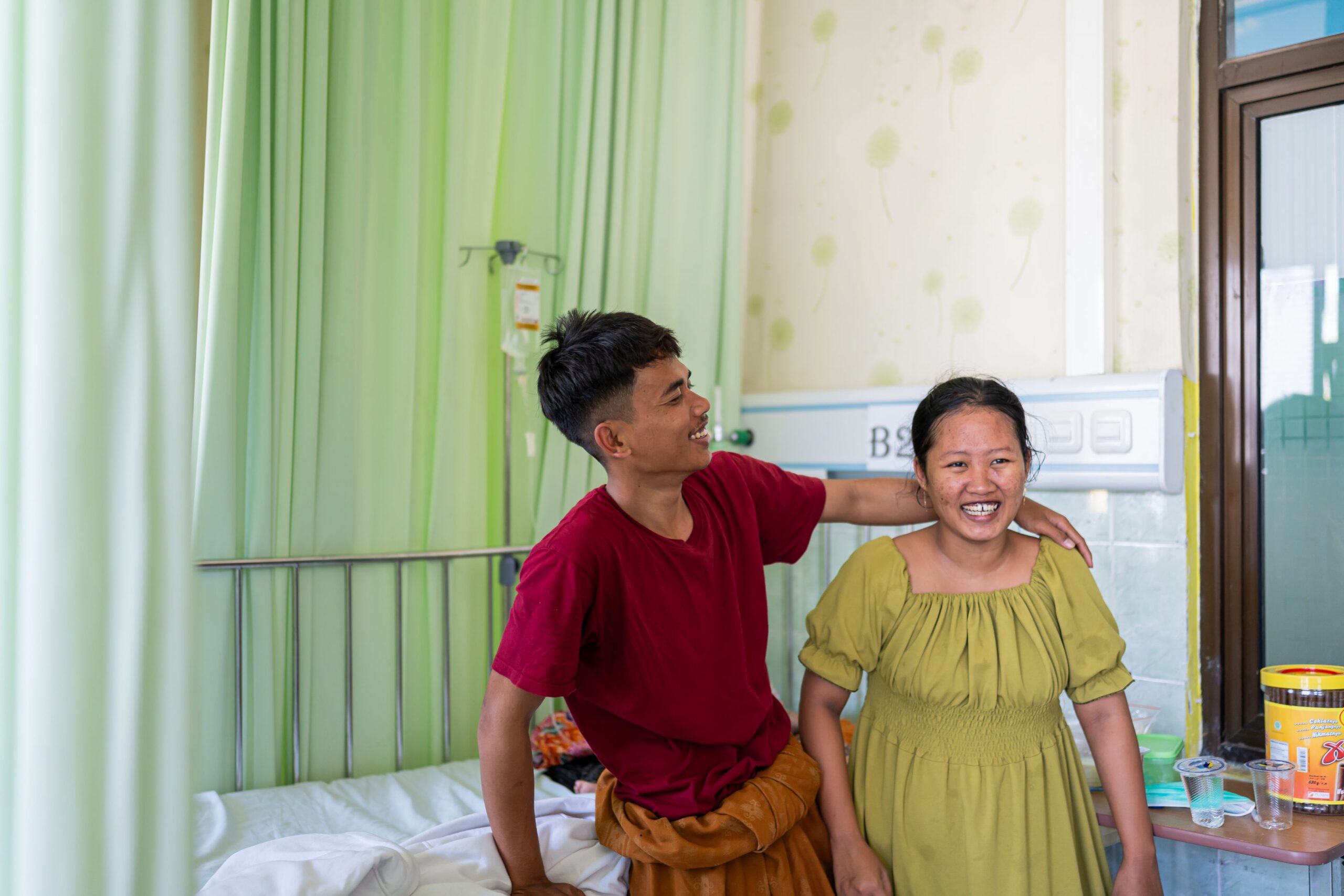
A new system of care: Shifting individual burden to collective action and love
This story is part of our 10-year anniversary celebration, honoring the many ways in which families, caregivers, communities, and health systems come together to care.
As families juggle medical, emotional, and financial responsibilities for their loved ones, caregiving often feels like a deeply personal and lonely journey, with little outside support.
But it doesn’t have to be this way.
At Noora Health, we’ve spent the last decade working to shift caregiving from an individual burden into a collective responsibility — one shared by families, communities, healthcare systems, and policy. Slowly but surely, we’ve seen this idea take root, with more people acknowledging and engaging in conversations about caregiving as a systemic component of healthcare delivery, in public health forums and global discussions.
Earlier this year, we had the privilege of partnering with Devex to co-host a panel discussion at the 77th World Health Assembly (WHA) on the importance of family caregiving and how it plays a significant role in healthcare delivery. We were honored to feature speakers from the Indian, Bangladeshi, and Indonesian ministries of health, alongside high-level representatives from the World Health Organization. The panel explored various facets of family caregiving, discussing how it has been transformative for health systems around the world and what more can be done to formally integrate family caregivers further.
Catch the full conversation here.
On our tenth anniversary, as we explore the theme of “Who cares? We all do,” we’re recapping key insights from the conversation, highlighting gaps and opportunities for building a kinder and more effective system of care.
1. Health is produced in households, not in facilities
Families play a key role in preventative care, which is critical for building healthier populations worldwide. By providing ongoing support, monitoring, and care, they help prevent illnesses and manage conditions before they worsen.
“Healthcare should not just be about caring for the sick or managing recovery after illness; it’s also about keeping your family healthy,” shared Budi G. Sadikin, Minister of Health of the Republic of Indonesia, during the panel discussion. Underscoring the importance of early intervention, he added, “Promotive and preventive care are much more important than curative care — they are cheaper and offer a better quality of life than waiting until treatment programs are needed.”
Dr. Neha Garg, Director of the National Health Mission and Mental Health, Ministry of Health and Family Welfare, India, also acknowledged the increasing importance of preventive care and the role families can play in it. She noted how India’s healthcare system is slowly shifting from primarily hospital-based care, to a more accessible, community-focused approach, accelerating progress toward the Sustainable Development Goals (SDGs).
As part of this shift, families are increasingly recognized as essential caregivers, caring for those who are ill, especially once they leave the hospital. “In India and other countries with similar societal structures, families have always been the primary support systems for the sick. Their role is even more vital for diseases that require minimal medical intervention but strict adherence to healthier lifestyles. Having someone to support the patient in lifestyle changes, such as regular exercise, medication adherence, nutritious meals is critical to ensuring patient health and recovery. This is particularly relevant in the case of non-communicable diseases, a key SDG target where caregivers play a crucial role,” she articulated.
2. Collective organization and action is key to a healthy future
Healthcare interventions cannot succeed in isolation. Public health challenges are multifaceted and require collaboration across various sectors and stakeholders — with caregivers playing a key role in building this future. The pandemic highlighted the need for a holistic, multisectoral, and multidisciplinary approach to address gaps and enhance preparedness for health emergencies and health security.
Mohammad Mamunur Rashid, Joint Secretary of the Health Services Division in Bangladesh, shared how the Covid-19 pandemic exposed the limitations of the healthcare system in Bangladesh and underscored the critical role family members played in managing mental well-being. “Our country, with a population of 170 million, faces multiple healthcare challenges, including high maternal mortality rates and pressing maternal and child health concerns. During Covid-19, we realized that the routine healthcare system alone was insufficient to address all these issues,” he shared. “Instead, a multi-sectoral approach that involved caregivers — family, friends, brothers, and sisters — proved far more impactful, especially for mental health.”
Rashid added, “This collaborative, whole-of-society approach, which included civil society and nonprofit organizations, allowed us to tackle various challenges throughout the pandemic. As a result, our Ministry of Health and Family Welfare has included caregivers and their representatives as members of the National Infection Control Committee.”
The Indonesian health minister echoed this sentiment, saying, “Healthcare cannot be managed solely through Ministry of Health programs. It must be inclusive, not approached as a program but as a movement. In Indonesia, I want to create a movement reaching all 68 million families, ensuring that healthcare delivery reaches every community at the village level.”
3. Family caregivers must be given the right tools
While family caregivers help ease the burden on overstretched health systems, they often lack the necessary support, recognition, and resources to support their loved ones. This gap can lead to missed critical warning signs and confusion during post-discharge care at home. Structured training programs that equip family caregivers with essential skills can enhance their competence and confidence while reducing anxiety. In maternal and child health, for instance, research shows that postnatal education for parents significantly improves health outcomes for newborn.
At Noora Health, the evidence we’ve seen from our Care Companion Program (CCP) echoes this. Equipping families with the right knowledge and skills reduced cardiac surgery complications by 71% and newborn readmissions by 56%.
Across health conditions, our experience has reaffirmed that supporting and training caregivers can reduce their burden of care, while improving patient outcomes.
Budi G. Sadikin highlighted how critical training caregivers can be for healthcare delivery in Indonesia, “If we can mobilize and facilitate all mothers of Indonesia to not only understand how to handle fever but also how to take a temperature and administer medications for coughs, we can make a real difference. For example, if we educate them on managing hypertension and inform them that if their blood pressure is around 130/90, they should visit the nearest puskesmas (primary healthcare facility) for free treatment, it can be transformative.”
4. Caregiving is a gender issue, and this needs to change
Across the globe, women continue to be the primary providers of informal care for family members with chronic conditions, disabilities, or mental illnesses, including the elderly. Our own research at The Caregiving Lab reaffirmed the fact that in a household, women and their older daughters often became caregivers by default. While this caregiving role often reinforces the gendered nature of domestic work, as a caregiver, these responsibilities usually expand to include sanitizing the house to prevent infections for the patient and separating out space for the patient which otherwise may be shared.
Dr. Neha Garg highlighted how societal pressures frequently push women into caregiving roles. “During a meeting with stakeholders developing a strategy for autism, we asked, ‘Where are the fathers?’ The room was filled with mothers. It’s not that fathers don’t want to be involved; it’s that social constructs dictate that, under stress, mothers are often the ones who step away from the workforce to care for the family, while fathers stay in the economic system.”
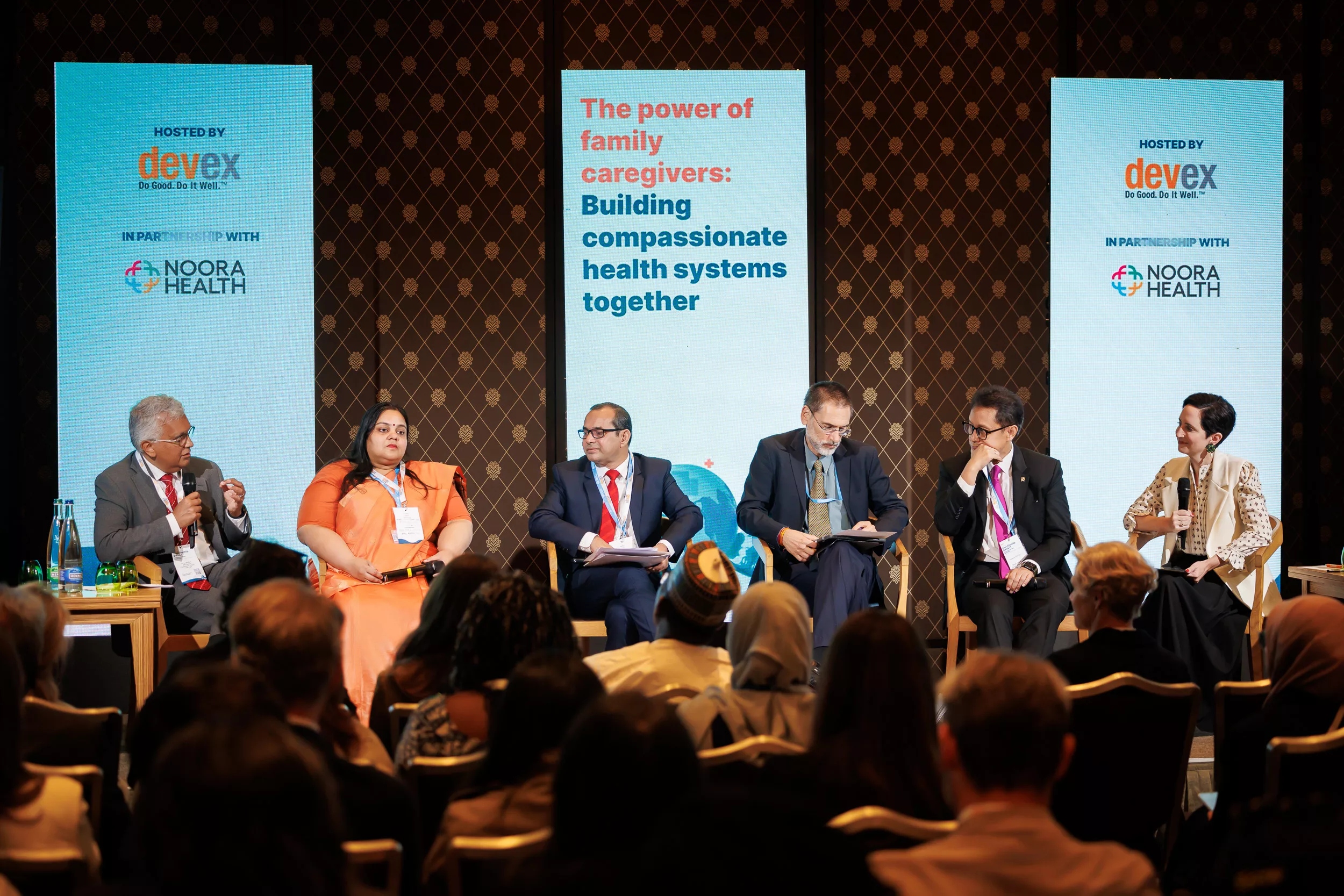
Dr. Anshu Banerjee, Director of the Maternal, Newborn, Child, and Adolescent Health and Aging Department at the World Health Organization, noted that this dynamic can increase women’s vulnerability. “When women sacrifice their careers to be caregivers, as they age, they may find themselves in a situation where — after their husbands have passed away — their pensions have diminished. This has significant economic implications for women throughout their lives.”
He added, “We must also recognize that caregivers often need care themselves. For instance, older women caring for their elderly husbands may already require assistance, yet who is there to provide that care? It’s crucial to acknowledge that caregivers include both men and women, fathers and mothers, husbands and wives.”
5. Compassion is key for stronger health systems
In the world of public health, words like ‘love’ and ‘compassion’ feel almost out of place — soft, emotional, abstract concepts in a field driven by hard data, policies, and measurable health outcomes. Yet, at its core, healthcare is about human connection and love. It’s what drives doctors to spend long hours finding the right diagnosis, nurses to offer comfort to patients through difficult nights, and caregivers to provide unwavering support, often at great personal sacrifice. Without love and compassion, even the most well-designed health system will fall short of truly caring for those it serves.
Dr. Shams Syed, Head of Policy and Partnerships at the World Health Organization’s Special Programme on Primary Health Care, emphasized that compassion must be the foundation of future healthcare systems. He highlighted the vital role of family caregivers in exemplifying this compassion, as they provide both emotional and practical support to patients and the broader healthcare system. He stated, “Being aware of human suffering, empathizing with that suffering, and most importantly, taking action to alleviate that suffering — family caregivers provide some of the most powerful examples of compassion being delivered from one heart to another.”
He added, “I think that it’s time that we realize that family caregivers are the backbone of the health system, and that is how it’s going to be in the future, and we need to start working for that.”
The conversation underscored a powerful truth: Family caregivers are the backbone of health systems worldwide. Whether through providing preventive care, managing chronic conditions, or supporting mental health, caregivers play an essential role that formal healthcare alone cannot fulfill. However, for caregivers to truly thrive, health systems must evolve to provide them with the tools, training, and recognition they deserve. By reimagining healthcare as a collective, compassionate effort that begins at home, we can create a system that not only treats disease but fosters well-being for all.


